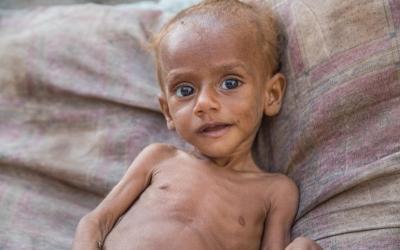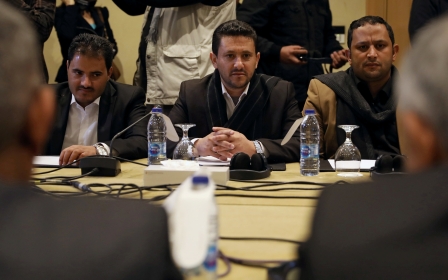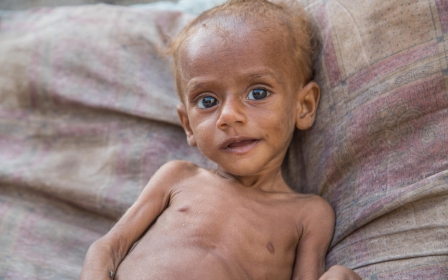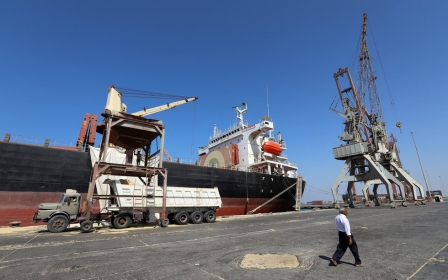UN says vital grain stores in Yemen's Hodeidah 'at risk of rotting'
The UN special envoy to Yemen has said the urgency of accessing vital grain stores trapped in a frontline position in the port city of Hodeidah was increasing as the food was "at risk of rotting".
The World Food Programme grain stores at the Red Sea Mills are enough to feed 3.7 million people for a month and have been inaccessible for more than five months, Martin Griffiths said in a statement on Monday.
New MEE newsletter: Jerusalem Dispatch
Sign up to get the latest insights and analysis on Israel-Palestine, alongside Turkey Unpacked and other MEE newsletters
The UN is pushing for the implementation of a ceasefire and troop withdrawal from Hodeidah, the main entry point for most of Yemen's imports, agreed in December in Sweden.
Accessing the 51,000 tonnes of UN wheat and milling equipment at the frontline flashpoint port is a key aim of ongoing peace talks.
Yemen's almost four-year war has killed tens of thousands of people, collapsed the economy and brought millions of people to the brink of famine.
'Shared responsibility'
The conflict pits the Houthi movement against a Saudi-backed coalition trying to restore the government of Abd-Rabbu Mansour Hadi after it was ousted from power in Sanaa by the Houthis in 2014.
Negotiations between warring parties last week produced what the UN called a "preliminary compromise" on how to withdraw troops, although the deal has not yet been finally agreed.
Griffiths said he was encouraged by the recent engagement of all sides in talks to find a way of accessing the mills, the Reuters news agency reported.
"We emphasize that ensuring access to the mills is a shared responsibility among the parties to the conflict in Yemen," the statement said.
"With safe, unfettered and sustained access, the United Nations can make this urgently needed food available to people in need."
The joint statement between Griffiths and UN aid chief Mark Lowcock said the UN was scaling up its operations to provide food assistance to nearly 12 million people across Yemen struggling to meet their daily food needs.
Middle East Eye delivers independent and unrivalled coverage and analysis of the Middle East, North Africa and beyond. To learn more about republishing this content and the associated fees, please fill out this form. More about MEE can be found here.





